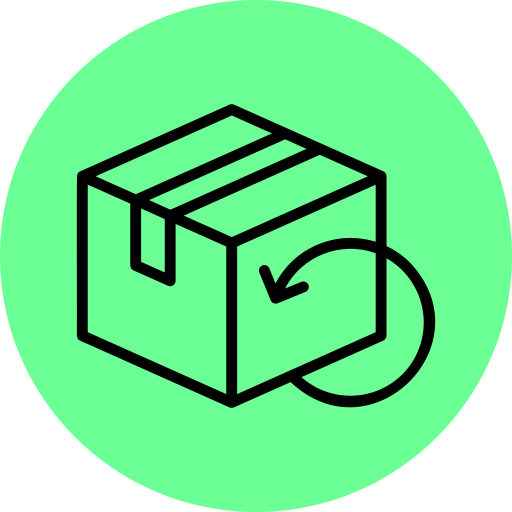Author: Dr. Achim Zinggrebe
Omega-3 fatty acids are important for normal brain function. Studies show that a lack of them can lead to attention deficits, learning disabilities, and even ADD or ADHD.
Accordingly, it is likely that supplementing with omega-3 could alleviate symptoms.
What's the truth? And: Who (whether child, adult, or pregnant) should consume how much of these fatty acids?
The current state of research offers some guidance.
In short: Does Omega-3 help with ADHD and ADD?
A deficiency in omega-3 fatty acids increases the risk of ADHD (Martins, Bandarra, Figueiredo-Braga 2020).
- At the same time, children with ADHD often have a deficiency (Agostoni 2017).
- Supplementation in the form of fish oil or other dietary supplements can help relieve symptoms in the long term.
- It can also improve the effectiveness of medications and reduce side effects.
- When choosing a supplement, you should consider five things.
What do current studies say?
Many studies show that adding omega-3 fatty acids can help people with ADHD or ADD.
There are two limitations: First, the effects vary from person to person. A supplement doesn't necessarily help, but it can. Second, omega-3 appears to be particularly helpful for mild to moderate symptoms.
These results are often observed:
Better concentration
The situation for children is particularly well researched. Studies show a moderate improvement in the symptoms of toddlers and children with ADHD (Döpfner et al. 2021) and ADD (University of Gothenburg, 2014).
These include attention deficits, learning disorders and difficulties concentrating.
However, these fatty acids are not suitable for short-term relief of concentration problems and other issues. Rather, they are designed for long-term treatment.
Gentler treatment with better results
Omega-3 fatty acids can support drug therapy (Chang, Su 2020). Medications such as Ritalin often work better and with fewer side effects when combined with omega-3 fatty acids (Greenblatt 2017).
In addition, some medications can be replaced by changing your diet or reducing the dosage. Always discuss this with your doctor!
|
Free e-book for parents Find out on 14 pages how you can better support your sensitive child with fluctuations in concentration. Subscribe to the newsletter now and receive the e-book directly |
How do I cover a deficiency?
First, you should determine whether a deficiency actually exists. Ask your doctor to perform a blood test.
However, a deficiency is relatively likely due to the Western diet. The human body needs an omega-6 to omega-3 ratio of approximately 2:1 to function optimally. However, in our diet, a 15:1 ratio is commonplace. This means we need more omega-3 to balance the ratio.
In addition, a deficiency can be genetic.
Which foods contain fatty acids?
In fact, the term refers to three different fatty acids: EPA, DHA, and alpha-linolenic acid (ALA). Each of them is essential , meaning we must obtain it through our diet.
A deficiency in alpha-linolenic acid is less likely than a deficiency in EPA and DHA. While the latter is found primarily in dark fish, we also get ALA from plant-based substances such as flaxseed or walnuts (primarily as oil).
The body can convert ALA into the other two fatty acids. However, this process is only possible to a small extent and is very complex . Therefore, it may be beneficial to pay particular attention to the need for EPA and DHA.
We get EPA and DHA primarily from oily fish and algae. The German Nutrition Society therefore recommends one to two servings of oily fish per week. This doesn't include lean, "white" fish like cod or carp, but rather sea fish like salmon, herring, or mackerel.
Experience shows: Demand is difficult to meet
You or your children should therefore eat oily fish about twice a week. However, this is often difficult in everyday life: children don't like the taste. And if you're vegetarian or vegan, it's even harder to meet your needs.
Even pescetarians reach their limits when two portions of oily fish per week are simply too much.
Dietary supplements can provide a practical solution.
Dietary supplements can provide relief
If you want to ensure a balanced diet, even if you don't eat fish several times a week, you can supplement with supplements. This takes some of the pressure off without risking a deficiency.
Fish oil is particularly suitable to supplement your diet.
Fish oil and co. can do that.
Fish oil is the most common omega-3 supplement because it contains primarily the fatty acids EPA and DHA, which are often particularly lacking in our diet.
There are alternatives for vegetarians, vegans or allergy sufferers, such as powder made from algae.
But not all fish oils are created equal. There are a few things you should keep in mind when purchasing.
|
Even more tips in our e-book for parents!
Subscribe to the newsletter now and receive the e-book directly |
Avoid these 5 mistakes when choosing your Omega-3 product
1. Choose the right fish oil. Your supplement should consist primarily of omega-3 fatty acids, especially EPA and DHA. You probably don't need a supplement for other fatty acids or alpha-linolenic acid. A highly concentrated supplement will provide you with the optimal ratio of EPA and DHA.
2. Opt for capsules or tablets. Fish oil often has an unpleasant taste. This is why children, in particular, often reject liquid oils. Odorless and tasteless capsules or tablets are easier to swallow.
3. Avoid additives: To improve the taste or extend shelf life, sugar or additives are often added to medications. This is especially true for chewable forms like gummy bears. These substances are unnecessary in well-made capsules or tablets.
4. Buy blister packs: Some oils need to be stored in a dark refrigerator or they will go rancid. Capsules or tablets in blister packs will keep for years, even when carried in a backpack or purse.
5. Look for quality seals: Your fish oil should be free of mercury or other heavy metals. Seals like "Friends of the Sea" and others certify sustainable production.
What dosage for children and adults?
The dosage should be adjusted to individual needs. We recommend 600 mg of EPA and DHA for children ages six and older . Children ages 14 and older and adults can increase the supplement to 1200 mg per day.
A 2:1 ratio of EPA to DHA is important. This has been shown to be optimal in studies with ADHD sufferers. So, make sure you find a fish oil with this ratio to ensure you get exactly the right amount of the two essential fatty acids.

Dr. Achim Zinggrebe is the father of three sons and founder of Machinaro . His nutritional supplements and guides are designed to help people cope with everyday life despite ADHD.
Sources
University of Gothenburg, 2014: "Omega 3 can help children with ADD, experts say." ScienceDaily. ScienceDaily, October 23, 2014. <www.sciencedaily.com/releases/2014/10/141023091815.htm>.
Martins BP, Bandarra NM, Figueiredo-Braga M., 2020: The role of marine omega-3 in human neurodevelopment, including Autism Spectrum Disorders and Attention-Deficit/Hyperactivity Disorder - a review. Crit Rev Food Sci Nutr. 2020;60(9):1431-1446. doi: 10.1080/10408398.2019.1573800. Epub 2019 Mar 18. PMID: 30880398.
Chang JP, Su KP, 2020: Nutritional Neuroscience as Mainstream of Psychiatry: The Evidence-Based Treatment Guidelines for Using Omega-3 Fatty Acids as a New Treatment for Psychiatric Disorders in Children and Adolescents. Clin Psychopharmacol Neurosci. 2020 Nov 30;18(4):469-483. doi: 10.9758/cpn.2020.18.4.469. PMID: 33124582; PMCID: PMC7609218.
Döpfner M, Dose C, Breuer D, Heintz S, Schiffhauer S, Banaschewski T., 2021: Efficacy of Omega-3/Omega-6 Fatty Acids in Preschool Children at Risk of ADHD: A Randomized Placebo-Controlled Trial. J Atten Disord. 2021 Jun;25(8):1096-1106. doi: 10.1177/1087054719883023. Epub 2019 Nov 2. PMID: 31680604.
Agostoni C, Nobile M, Ciappolino V, et al. The Role of Omega-3 Fatty Acids in Developmental Psychopathology: A Systematic Review on Early Psychosis, Autism, and ADHD. Int J Mol Sci . 2017;18(12):2608. Published 2017 Dec 4. doi:10.3390/ijms18122608 H





